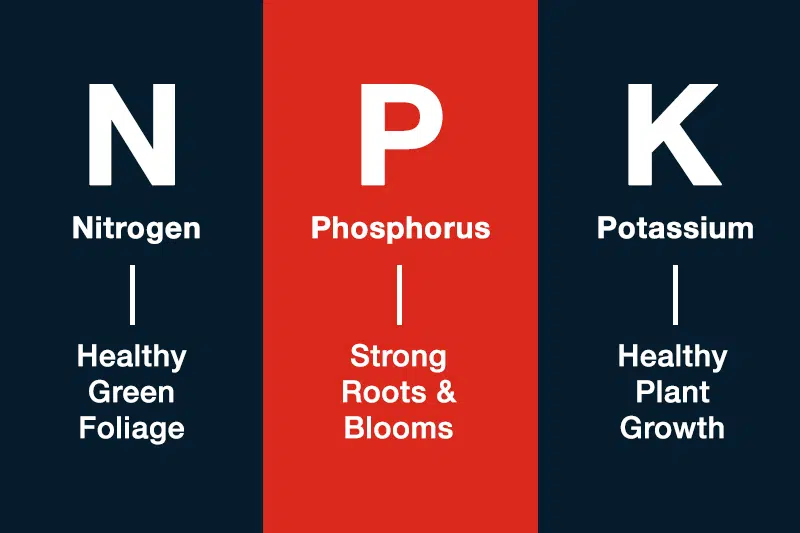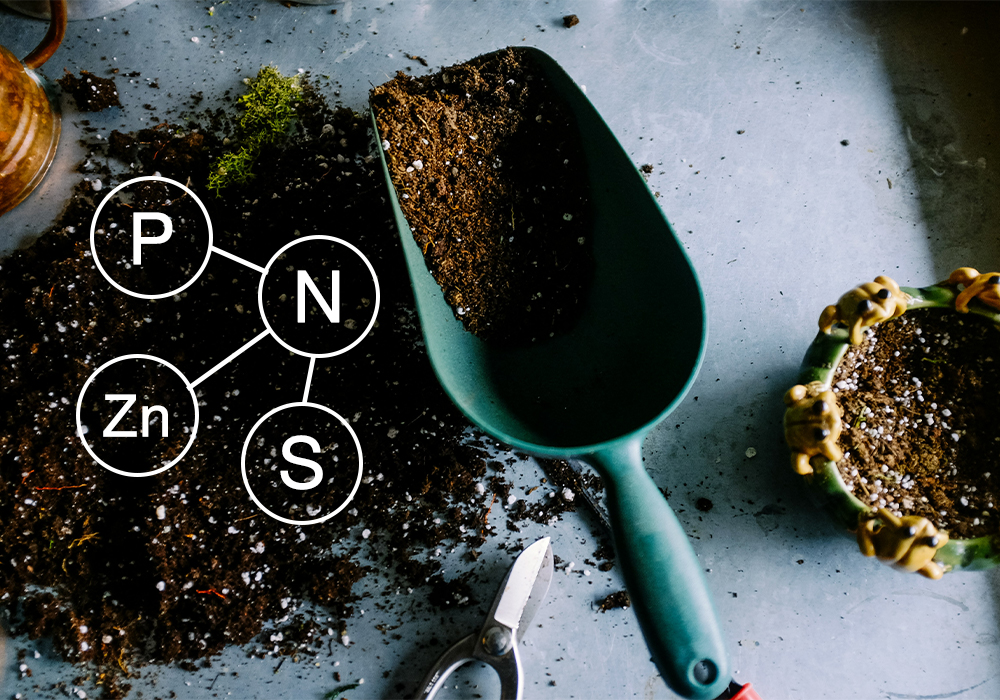Plants, like humans, require a balanced diet to thrive. This diet consists of a mix of both macro and micronutrients. In this article, the experts at Grow With Mills will explore the world of plant nutrition and explain the importance of macronutrients vs micronutrients for Plants.
Understanding Plant Nutrition
Plant nutrition is a complex and intricate process. Plants need 17 essential nutrients to survive and thrive. These nutrients help them grow, reproduce, and carry out their vital functions. They are divided into two categories: macronutrients vs micronutrients for Plants.
For the best plant nutrition, find a Mills Nutrients retailer near you for the best deals on plant nutrients and substrates.
Macronutrients
Macronutrients are the nutrients that plants need in large quantities. They include Nitrogen (N), Phosphorus (P), and Potassium (K). These are the primary macronutrients. These elements are usually represented as N-P-K on fertilizer packages.

Nitrogen (N)
Nitrogen is indispensable for plants. It promotes the growth of foliage and is essential for photosynthesis.
Phosphorus (P)
Phosphorus is responsible for the healthy development of roots and helps in flower and fruit formation. Plants like legumes, carrots, beets, tomatoes, peppers, and melons have a high phosphorus requirement.
Potassium (K)
Potassium plays a crucial role in the overall development of flowers and fruits.
In addition to these, plants also need secondary macronutrients like Calcium (Ca), Magnesium (Mg), and Sulfur (S).
Calcium (Ca)
Calcium plays a crucial role in plants by facilitating cell wall structure and stability, signaling cellular processes, and aiding in nutrient transport and stress response.
Magnesium (Mg)
Magnesium is vital for plants as it serves as the central atom in chlorophyll, enabling photosynthesis, and plays a key role in enzyme activation and energy transfer.
Sulfur (S)
Sulfur is essential for plants as it is a key component of amino acids, proteins, and vitamins, and contributes to chlorophyll production and photosynthesis.
Micronutrients
Despite being needed in smaller quantities, micronutrients are as vital as macronutrients for plant health. They include elements like Boron, Iron, Chlorine, Manganese, Copper, Molybdenum, Nickel, and Zinc.
Boron (B)
Boron is critical for cell wall formation and repair, pollen tube growth, and seed and fruit development.
Iron (Fe)
Iron is vital for chlorophyll synthesis, acts as a catalyst in photosynthesis, and is involved in energy transfer within the plant.
Chlorine (Cl)
Chlorine plays a role in osmosis and ionic balance, and is involved in photosynthesis and oxygen production.
Manganese (Mn)
Manganese is essential for photosynthesis, chloroplast formation, and acts as a cofactor for several enzymes involved in plant metabolism.
Copper (Cu)
Copper is involved in photosynthesis, respiration, and the metabolism of carbohydrates and proteins, and also acts as a catalyst in lignin production.
Molybdenum (Mo)
Molybdenum is crucial for nitrogen fixation and the assimilation of nitrogen into amino acids within the plant.
Nickel (Ni)
Nickel is necessary for nitrogen metabolism and is a component of the enzyme urease, which is vital for nitrogen assimilation.
Zinc (Zn)
Zinc plays a critical role in growth hormone production, enzyme activation, and is essential for protein synthesis and carbohydrate metabolism.
Nourishing Your Soil with Macronutrients and Micronutrients
The key to a healthy garden is soil rich in both macronutrients and micronutrients. Here’s how you can achieve this with Mills Nutrients along with a couple of tips and tricks:
- Use Organic Fertilizers: Organic fertilizers not only provide the necessary macronutrients but also add valuable micronutrients to the soil.
- Start Composting: Composting is an excellent way to recycle organic matter like leaves and grass clippings. The decomposed material is rich in nutrients.
- Adopt a No-Till Method: This method involves adding organic soil amendments in layers without disturbing the microbial life underneath. This helps in the natural movement of nutrients into the soil.
- Use Organic Mulches: Organic mulches enrich your soil with nutrients over time and also help in combating soil erosion.
- Rotate Crops: Crop rotation prevents nutrient depletion from the soil.
Concluding Thoughts
In conclusion, both macronutrients and micronutrients play a vital role in plant health. By understanding their importance and learning how to provide them, you can ensure a thriving and productive garden.
Remember, the key to a healthy garden is not just about providing these nutrients, but also maintaining a balance. Over-fertilizing can be as detrimental to plant health as under-fertilizing. So, it’s crucial to understand the specific needs of your plants and provide the right nutrients accordingly.





3 thoughts on “Macronutrients vs Micronutrients for Plants”
Hi,
I hope you’re doing well.
I wanted to introduce you to SheMed, a platform dedicated to helping women achieve their weight loss
goals.
Feel free to visit our https://www.shemed.co.uk/blog/how-to-balance-macronutrients-for-weight-loss for more information.
If you have any questions, please don’t hesitate to reach out.
Best regards,
Marissa
Just as plants rely on the right balance of nutrients to grow, making informed choices about what we consume also matters. Understanding how different foods impact our bodies starts with tools like the glycaemic index: https://www.shemed.co.uk/blog/understanding-the-glycaemic-index-gi-for-better-food-choices
Great read it’s fascinating how both macro and micronutrients must work in tandem for plant vitality. This balance concept also applies when managing human nutrition there’s useful insight in this link: https://www.shemed.co.uk/blog/how-to-balance-macronutrients-for-weight-loss